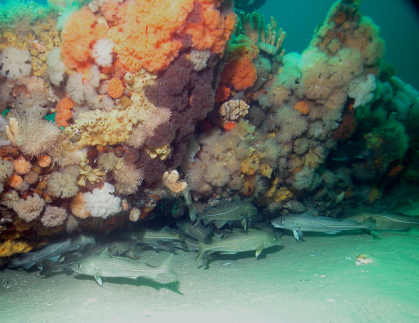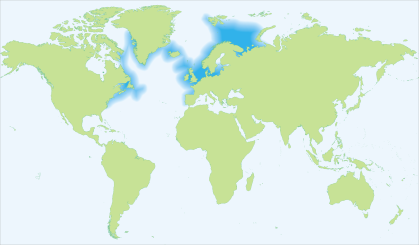This article was adapted from Todd Bates’ press release.

shipwrecks. Photo: NOAA
Overfishing likely did not cause the Atlantic cod, an iconic species, to evolve genetically and mature earlier, according to a study led by Drs. Malin Pinsky and Bastiaan Star.
“Evolution has been used in part as an excuse for why cod and other species have not recovered from overfishing,” said Malin. “Our findings suggest instead that more attention to reducing fishing and addressing other environmental changes, including climate change, will be important for allowing recovery. We can’t use evolution as a scapegoat for avoiding the hard work that would allow cod to recover.”
The study, which focuses on Atlantic cod (Gadus morhua) off Newfoundland in Canada and off Norway, appears in the journal Proceedings of the National Academy of Sciences.

Many debates over the last few decades have centered on whether cod have evolved in response to fisheries, a phenomenon known as fisheries-induced evolution. Cod now mature at a much earlier age, for example. The concern has been that if the fish have evolved, they may not be able to recover even if fishing is reduced, according to Pinsky.
Cod populations with late-maturing individuals can produce more offspring and more effectively avoid predators, he said. They are also better protected against climate variability.
Both theory and experiments suggest that fishing can lead to an earlier maturation age. But prior to the new study, no one had tried to sequence whole genomes from before intensive fishing to determine whether evolution had occurred. So, this team sequenced cod earbones and scales from 1907 in Norway, 1940 in Canada and modern cod from the same populations. The northern Canadian population of cod collapsed from overfishing in the early 1990s, while the northeast Arctic population near Norway faced high fishing rates but smaller declines.
The team found no major losses in genetic diversity and no major changes that suggested intensive fishing induced evolution, suggesting that we focus on managing for more direct threats (e.g., overfishing, environmental change) than for evolution.
This study prompts future investigations to see if other species, especially those with shorter lifespans (in contrast to cod), do or don’t show signs of evolution.
Scientists at the University of Oslo, Fisheries and Oceans Canada, Institute of Marine Research (Norway), University of Basel and University of Zurich contributed to the study.
Read additional coverage by Science Magazine here!
Read the original press release here!
